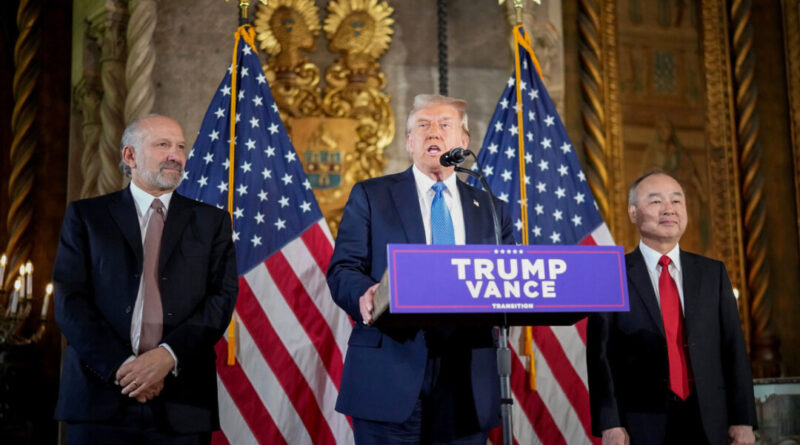Trump Promises Legal Action Against Biden Administration’s Hybrid Work Extension Agreement
The agreement permits 42,000 federal employees to maintain teleworking arrangements up until 2029.
President-elect Donald Trump has announced plans to file a lawsuit to overturn a deal established by the Biden administration that secures hybrid work for numerous federal workers for an additional five years.
Before resigning last month, Martin O’Malley, the Social Security Administration (SSA) Commissioner, signed this agreement with the American Federation of Government Employees (AFGE). As initially reported by Bloomberg, the arrangement is said to prolong the existing hybrid work conditions for the union’s 42,000 SSA employee members through the year 2029.
“They just finalized this—it’s absurd,” Trump stated during a press conference at Mar-a-Lago in Florida on December 16.
“This is essentially a gift to a union, and we will certainly take legal action to prevent it from taking effect.”
Trump has consistently expressed a desire to reduce the size of the federal government, announcing intentions to create the Department of Government Efficiency, or DOGE, to streamline costs and regulations. In support of this initiative, tech billionaire Elon Musk and former presidential candidate Vivek Ramaswamy, who have both been selected to lead the new advisory committee, have endorsed the elimination of remote and hybrid work options for federal employees.
“Mandating federal employees to report to the office five days a week would lead to a significant number of voluntary resignations that we would welcome: If federal employees choose not to come in, American taxpayers shouldn’t be responsible for compensating them for the privileges of working from home during the pandemic,” the entrepreneurs articulated in a Wall Street Journal op-ed.
“The Biden-Harris Administration has not only failed to tackle persistent issues of federal employee accountability but has also surrendered presidential authority over the federal government to union allies. Furthermore, the Biden Administration has actively worked to restrict a future Administration’s ability to manage employees effectively and responsibly, thereby enhancing accountability to the public,” the lawmakers asserted, urging for an end to all collective bargaining negotiations initiated under the Biden administration.
Over the last two years, Republican lawmakers have advocated for a return to in-person work across federal agencies, arguing that the telework policies implemented during the pandemic have diminished productivity.
“As the rest of America resumed in-person work, many federal employees did not, and the American populace has suffered as a consequence,” Comer remarked on the House floor in February 2023.
“They have waited for months to receive their tax refunds from the IRS. They have waited for months for the Social Security Administration to respond to their inquiries and distribute their benefits. Our veterans have even had to wait months to obtain their medical records from the National Archives.”
Recently, AFGE has responded to assertions that hybrid work adversely impacts productivity.
“Telework and remote work are tools that have enabled the federal government to enhance productivity and efficiency, maintain continuity of operations, and bolster disaster preparedness. These policies also aid agencies, such as the Social Security Administration, in recruiting and retaining top talent,” the union stated in a December 16 announcement.
Referencing data from the Office of Management and Budget, the organization highlighted that only 10 percent of federal employees work fully remote and that those on hybrid schedules spend more than 60 percent of their work hours in the office.
In response to the president-elect’s announced plans to initiate a lawsuit, AFGE expressed readiness to counteract.
“Collective bargaining agreements entered into by the federal government are binding and enforceable by law,” they stated. “We are confident that the incoming administration will uphold their obligations to honor lawful union contracts. Should they fail to do so, we are prepared to assert our rights.”





